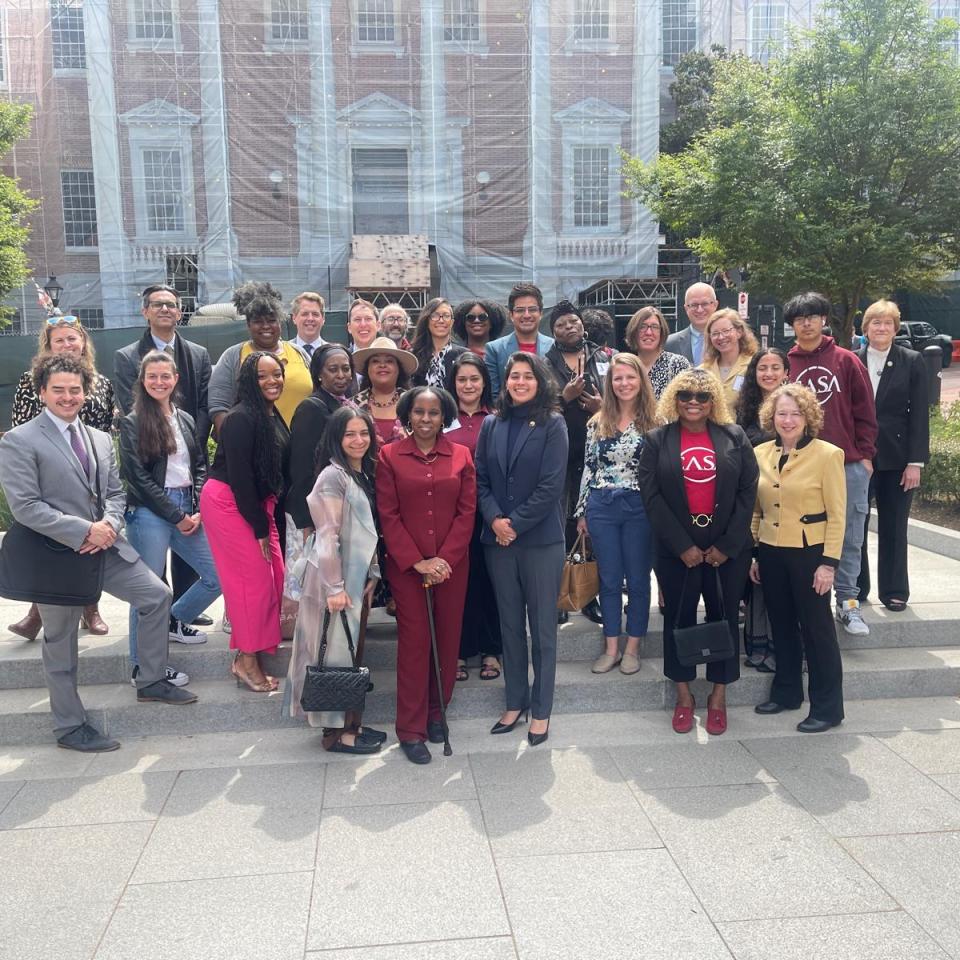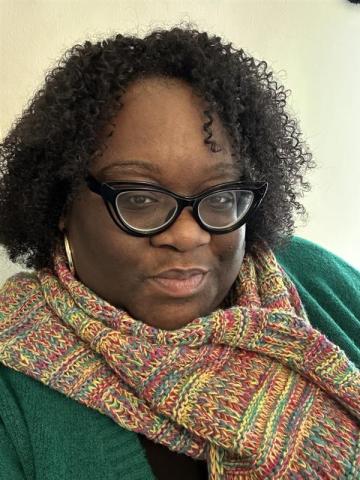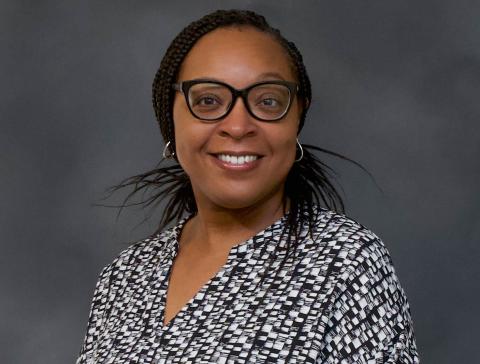
Renters Unite!
Since 2019, Health Care for the Homeless has been part of the Renters United Maryland (RUM) coalition—a key
advocacy group advancing housing justice in Maryland. We talked to RUM leader Zafar Shah about the coalition
and wins this legislative session.
What drives the priorities of the coalition?
We all believe that safe, affordable, lasting housing is a human right and that the state’s failure to uphold that right
is not simply a market condition but a policy choice. It’s the wrong choice to make in a state where 30-40% of households are renting and the majority of those households have to make monthly trade-offs between paying the rent or paying for other essentials. That’s what drives RUM’s priorities. We believe those trade-offs are damaging, particularly to residents whose access to housing and economic security are constrained by systemic racism. We have die-hard advocates for justice in RUM, and we increasingly rely on renters themselves to inform the coalition’s priorities.
What are some of the trends you are seeing with housing in Maryland since the peak of COVID?
On one hand, economic safety nets were pulled away despite continuing need. Not only federal rental assistance,
but expanded child tax credits, expanded SNAP benefits, extended Medicaid coverage. As all of these supports
ended, landlords raised rents by around 20% over two years. Household goods also rose in price. And wages did not
keep pace. In 2021 and 2022, evictions for non-payment of rent had fallen to historic lows – around 300,000 cases filed each year. In 2024, landlords filed well over 400,000 cases.
At the same time, we are seeing the effects of widespread property mismanagement. Rapid turnover in management
staffing, negligent business record keeping, and deferred maintenance and repairs are all problems that have come
to a boil now for tenants. Why should people who are interested in ending homelessness care about renters’ rights?
To end homelessness, we have to look to root causes. There is abundant research to show that “housing costs explain
far more of the difference in rates of homelessness than variables such as substance use disorder, mental health,
weather, the strength of the social safety net, poverty, or economic conditions” (Pew 2023). Unaffordability puts
renters into disadvantageous positions with housing choices. A 2023 report on eviction prevention funds in Maryland
found that 20-25% of persons evicted become homeless. Renters’ rights are key to preventing homelessness.
Tell us about the bills you helped pass in 2024.
RUM helped to pass the Tenant Safety Act (HB1117) to give renters stronger tools to hold landlords accountable for
substandard housing conditions and legislation to establish a rental assistance fund for community schools (HB0428/
SB0370). We worked hard to beat back harmful amendments to Governor Moore’s successfully passed Renters’ Rights and Stabilization bill. Coalition members also helped to pass legislation around shielding court records in eviction cases.
What can readers do to support safe, healthy homes for all?
First, you can be vocal. During the pandemic, officials, lawmakers, and media heard the message from all corners
that the housing crisis was real. The backlash against renters is rumbling in Annapolis already, as though now
it’s time to protect landlords’ advantages. Amplifying the real-life stories of renters will make a difference. Reach out
to us at contact@rentersunitedmaryland.org.
Second, reject the us-versus-them rhetoric that helps to keep bad housing policies in place. Homeowners versus
renters, market-rate renters versus subsidized renters, citizens versus immigrants, cities versus suburbs and rural
communities – these kinds of rhetoric work to silence the voices that talk about housing for all, and sometimes it’s
“our side” playing into that rhetoric. We all gain more by thinking about housing collectively.
More Recent News
We are thrilled to welcome Nikia Woodard, our new Director of Human Resources! With more than two decades of experience in the HR field, Nikia previously held leadership roles with the Maryland Transit Administration, Unified Women’s Healthcare and a behavioral health residential treatment facility for youth in Baltimore. Most recently, she served as Director of Employee Experience & Organizational Development at Loyola University Maryland, implementing university-wide professional development programs and encouraging a culture of continuous learning. Read on to learn more about Nikia (and her favorite snack)…
After a year of serving as Practice Manager of West Baltimore, Alkema Jackson is moving into the new role of Director of Practice Operations, Community Sites! She joined Health Care for the Homeless in 2022 as the Client Access Project Coordinator, collaborating across departments to help more people connect to agency services, and in 2023, she received a Core Value Award for Hope. Read on to learn more about Alkema’s approach to this new position…
Meet Christana Greene, our new Director of Compliance! With more than five years in the compliance field—most recently as Senior Quality and Patient Safety Specialist at GBMC Healthcare—Chrissy brings frontline insight to the role. She began her career as a medical assistant, gaining firsthand experience in what it takes to keep care safe and operations running smoothly. In her new role, Chrissy is focused on building a compliance culture grounded in safety, integrity and accountability. Read on to learn more about Chrissy...
Baltimore gets dangerously cold, and too many of our neighbors are out there. Here are three simple things you can do to make a difference in someone’s life this winter.




